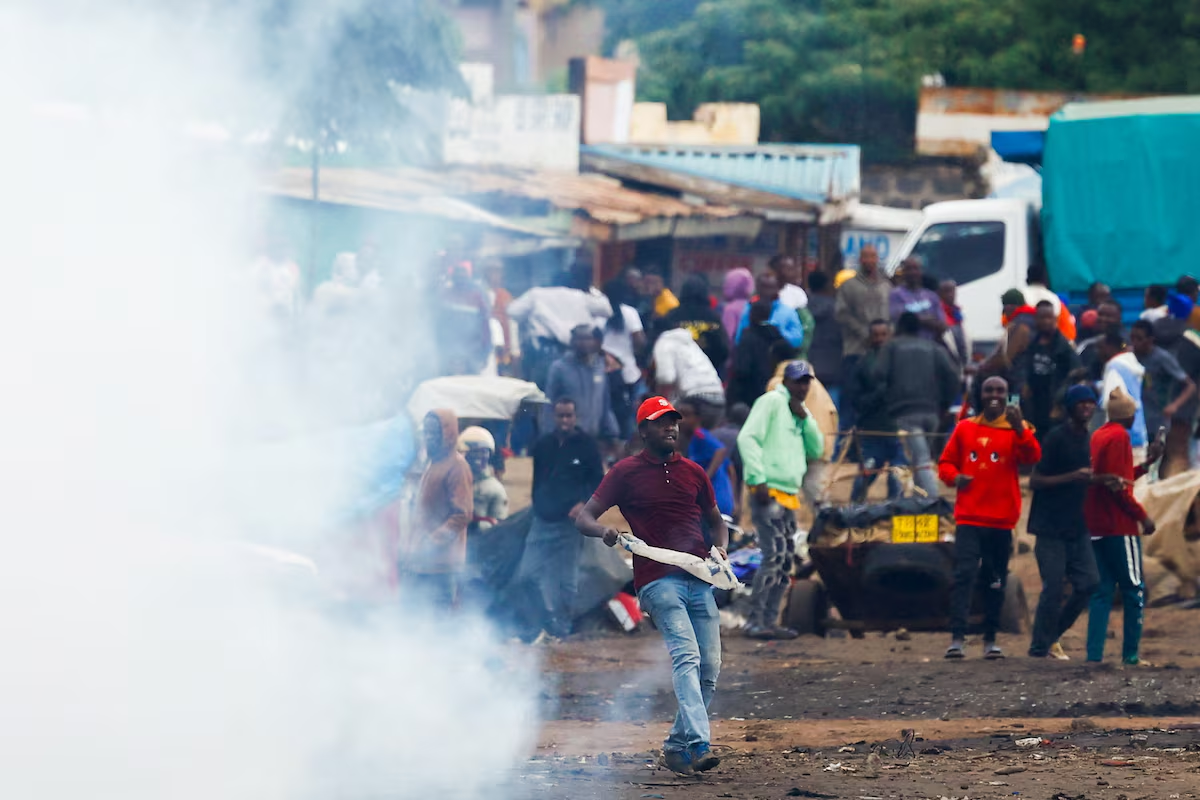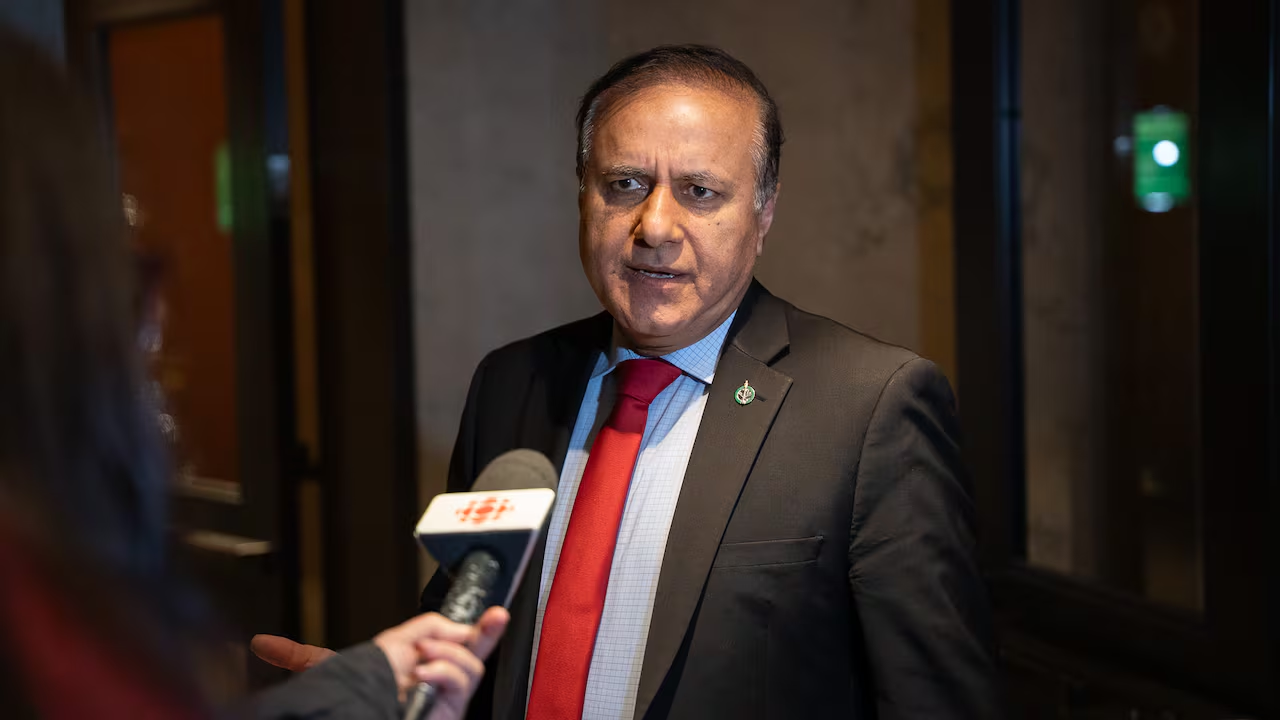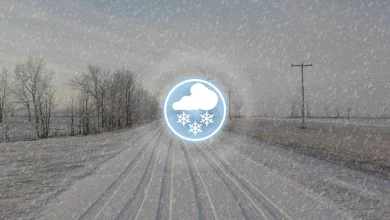Opinion: I survived the post-election violence in Tanzania. To move forward, honesty must come first

Open this photo in gallery:
Demonstrators react after Tanzanian riot police lobbed tear gas during a protest on Oct. 30. Violent protests broke out during the country’s presidential and parliamentary elections.Thomas Mukoya/Reuters
The author of this piece is a Tanzanian journalist whose identity The Globe and Mail is protecting.
The gunfire erupted so suddenly, it left no time to think.
I was in a neighbourhood on the outskirts of Dar es Salaam, near the 6 p.m. curfew hour, searching for food for my family, when a white Toyota Land Cruiser screeched to a halt. Gunmen in black uniforms leapt out with automatic rifles and opened fire indiscriminately.
The shots shredded the air. I saw a young man beside a wooden stall jerk as a bullet hit his chest. He collapsed instantly. Another screamed, clutching his thigh as blood soaked his shorts. A third fell near the pavement, wailing, his legs useless.
The gunmen moved with lethal precision, chasing fleeing youths down the road.
Tanzania charges 145 people with treason for protests during disputed election
I could barely breathe, stunned at the sight of people hunted like animals. I ran blindly, branches lashing my arms, lungs burning, until I reached a patch of bush near a dry drainage channel. I dove into a thicket, thorns scraping my shins, soil in my palms, crawling deeper until I was concealed. A low-hanging branch had knocked my glasses off, the frames shattered, lenses cracked. The world blurred into indistinct shapes. I shoved the pieces into my pocket and lay flat against the earth, helpless.
Then came the sniper fire. Slow, deliberate, tracking every movement. I could see only a few metres ahead. Every rustle of grass, every whisper of wind, seemed like a death sentence. Tears blurred my vision further. Panic gripped me. If the gunmen swept the bush, I was dead.
Hours passed. Darkness fell like a heavy curtain. Gunfire cracked intermittently, near enough to make my ears ring. Without my high blood pressure medication, each thump of my pulse felt like a warning that I might not survive.
The worst part wasn’t the gunfire – it was the voices. Harsh commands cut through the darkness. Their unfamiliar foreign accents seemed to confirm the suspicions that Tanzania had recruited Ugandans to reinforce its police force. Boots pounded the dirt road – running, pausing, then running again. Later, two sharp whistles rang out: military signals. Mosquitoes pricked my arms and neck. My phone battery had died during the chaos. I was completely stranded. At one point, a scream erupted and ended abruptly. Someone else had been shot.
I stayed in the bush the entire night, afraid even to roll onto my side.
Open this photo in gallery:
People protest in the streets of Arusha.The Associated Press
Two days earlier, Oct. 29, was election day in Tanzania. It was a tightly controlled event. The two main opposition parties had been banned, so the outcome was obvious. Many people weren’t bothering to vote. There was a heavy security presence in the streets, and a palpable fear in the air. Everyone knew that President Samia Suluhu Hassan would be declared the winner, and protests were likely to erupt.
My neighbourhood usually hummed with motorcycle taxis, vendors chopping vegetables, children shouting to one another. But that morning, an eerie silence reigned. Shops were shuttered, food stalls abandoned.
In a nearby township, I saw a lorry crawling down the road, packed with perhaps 150 to 200 people. Some wore the green T-shirts of the ruling party. Others stared blankly ahead. Two men barked orders. No one resisted. No one spoke. They sat like prisoners of fate, and the rumours we had been hearing – of people being ferried to vote multiple times – felt painfully real.
Canada, allies raise doubts over Tanzanian election as president claims landslide victory
At the polling stations, there were no voters, only bored election officials and heavily armed police in riot gear. Their posture suggested they expected violence. The country seemed to hold its breath.
By noon, that breath was shattered. Social media exploded with videos of protests across the city. People flooded the streets. Police charged. Tear gas rolled through neighbourhoods like a grey storm. And then, suddenly, everything went dark. The authorities had shut down the internet. Facebook was gone, X dead, WhatsApp disconnected. Our usual tools – virtual private networks that can bypass a shutdown – were useless. For a journalist, losing the internet during unrest is like losing oxygen.
At home, the crisis hit even harder. My daughter needed medicine, but a sunset-to-sunrise curfew had been introduced on election day, and many businesses were entirely closed, fearing violence. Shops and pharmacies locked their doors. Transport disappeared. People rationed scraps.
Despite the danger, I had to venture out on Oct. 31 to find food and medicine – not realizing it would put me directly in the line of fire.
Open this photo in gallery:
Riot police officers disperse protesters at the Namanga One-Post Border crossing point between Kenya and Tanzania.Thomas Mukoya/Reuters
By dawn on Nov. 1, after the longest night of my life, I eased myself from the bush. My legs were stiff, my face stung with bites, my vision a blur without my glasses. The city was unrecognizable: shops shuttered, stalls overturned, people hiding behind curtains. There were rumours of disappearances and bodies in the streets. Fear was everywhere.
As I walked home, shaken and half-blind, I carried the heaviest truth I have ever known: This time, the violence didn’t happen to other people. This time, I was the one running, hiding in the dark, almost dying.
At my gate, I saw my wife and daughters. My youngest daughter recognized me first, letting out a sound that was half-sob, half-scream, and ran into my arms, nearly knocking the wind out of me. She clung to me, repeating, “Baba, we thought you died … We thought they killed you.”
My eldest touched my arms and face, afraid I might vanish if she blinked. “You’re alive,” she whispered. My wife stepped forward slowly, cupping my face and pulling me into her chest. Her tears soaked my cheek. They had already begun mourning me.
Even in the safety of home, my body still trembled. But in their relief and raw love, I saw the truth: The night had changed everything. And I will never forget how quickly a city can turn into a hunting ground.
Open this photo in gallery:
Mourners gather for the funeral of someone who died during the post-election violence, in Arusha, on Nov. 4.The Associated Press
When the authorities finally lifted the internet shutdown, dozens of videos from across the country began to emerge, showing police firing at crowds and bullet-riddled bodies piled up in hospitals and mortuaries.
Hundreds of people – perhaps thousands – were killed in the crackdown, according to human-rights groups.
Ms. Hassan has promised an investigation, but few expect it to lead anywhere. The President was declared the winner of the election by an official 98-per-cent margin, with an astonishingly high voter turnout that nobody believed.
Protesters are trying to organize another national demonstration on Dec. 9, the country’s Independence Day. Many of Tanzania’s young generation are still determined to remove Ms. Hassan from power.
What happened after the elections was not only unprecedented but a turning point in Tanzania’s history. I have covered moments of tension before, but never have I seen such deliberate force used against unarmed citizens whose only crime was demanding their voices be heard. The rupture has shaken the country’s sense of stability and exposed a deeper fragility beneath our democratic façade.
For Tanzania to move forward, honesty must come first. Authorities must publicly condemn the killings and acknowledge that those who died were Tanzanians whose rights deserved protection. Security commanders implicated in the violence should face justice, and all those detained must be released unconditionally. I believe only an independent international investigation can restore public trust.
The donor community, including Canada, must put sustained pressure on Tanzanian authorities to respect human rights and democratic norms. Silence now would only embolden further abuses. As history shows, bullets do not silence people. Violence only sows the seeds for more resistance. Tanzania deserves a different future, and the world must stand firmly with its citizens.





